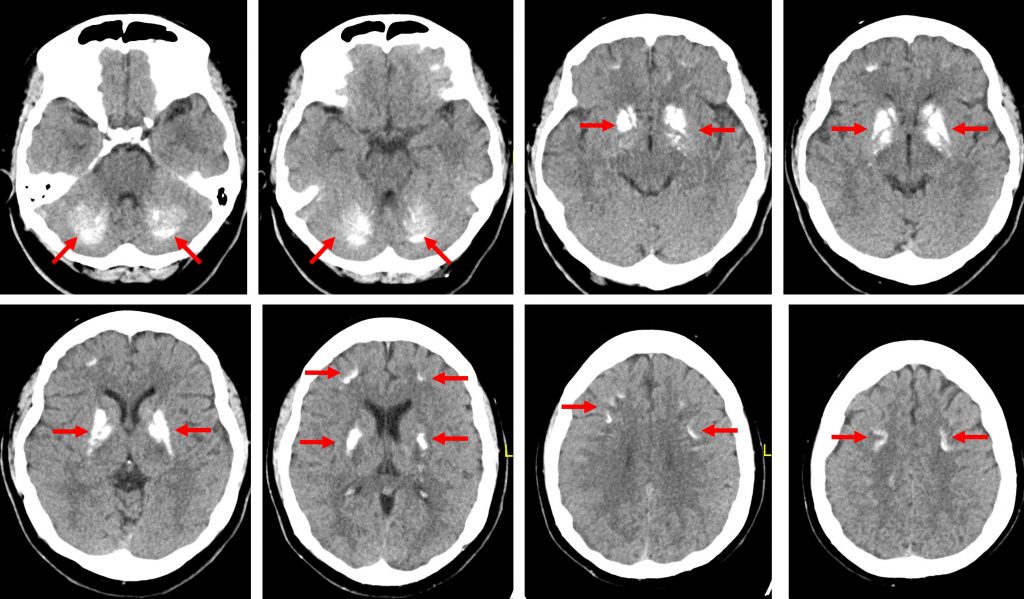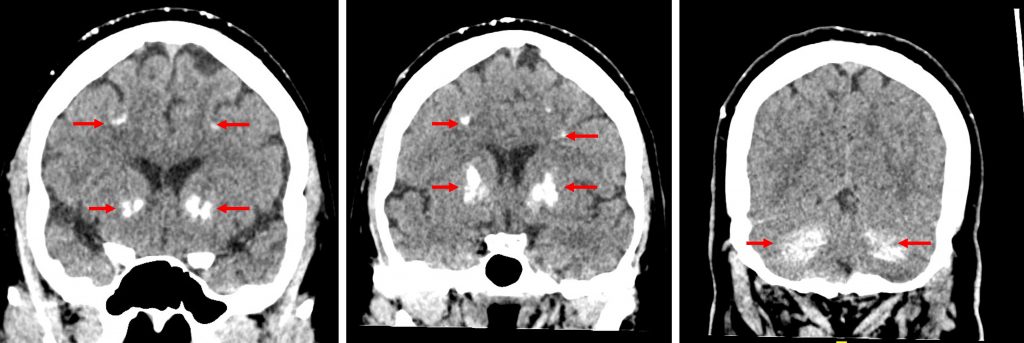Case contribution: Dr Radhiana Hassan
Clinical:
- A 30-years old with underlying psoriasis and pseudohypoparathyroidism
- Presented with hallucination and behavioural change
- No fitting episode
- No obvious neurological deficit


CT scan findings:
- CT brain non contrast in axial and coronal plane, soft tissue window
- Extensive dense coarse calcifications at bifrontoparietal deep white matter, basal ganglia, and cerebellum
- Bilateral and almost symmetrical involvement.
- No acute intracranial bleed. No focal hypodensity to suggest infarct.
- Grey and white matter differentiation still preserved.
- No midline shift. No hydrocephalus.
Diagnosis: Fahr syndrome
Discussion:
- Fahr disease = idiopathic striopallidodentate calcinosis = cerebrovascular ferrocalcinosis
- Fahr syndrome = same appearance as Fahr Disease but secondary to underlying disorder (e.g endocrine disease)
- The condition that has been closely described with this appearance is primary hypopara-thyroidism.
- Other causes include lupus, tuberous sclerosis, Alzheimer’s disease, myotonic muscular dystrophy and mitochondrial encephalopathies
- Causing progressive dystonia, parkinsonism, neuropsychiatric manifestations
- Bimodal pattern of clinical onset: early adulthood (psychosis) and 6th decade (extrapyramidal syndrome, subcortical dementia)
- Imaging shows extensive calcifications involving the basal ganglia (globus pallidus), putamen, caudate, thalami and periventricular deep white matter
- Although Fahr’s syndrome and Fahr’s disease are rare entities they should be suspected in patients with neuropsychiatric disturbances and seizure disorder.
- Routine biochemical investigations should always be performed to rule out metabolic causes.
- Conversely, all patients with incidentally detected striopallidodentate calcinosis should be subjected to thorough neuropsychiatric examination and if required, biochemical tests.
- Knowledge of the associated conditions will not only help to rectify the treatable cause but will also prevent unnecessary treatment in others.
